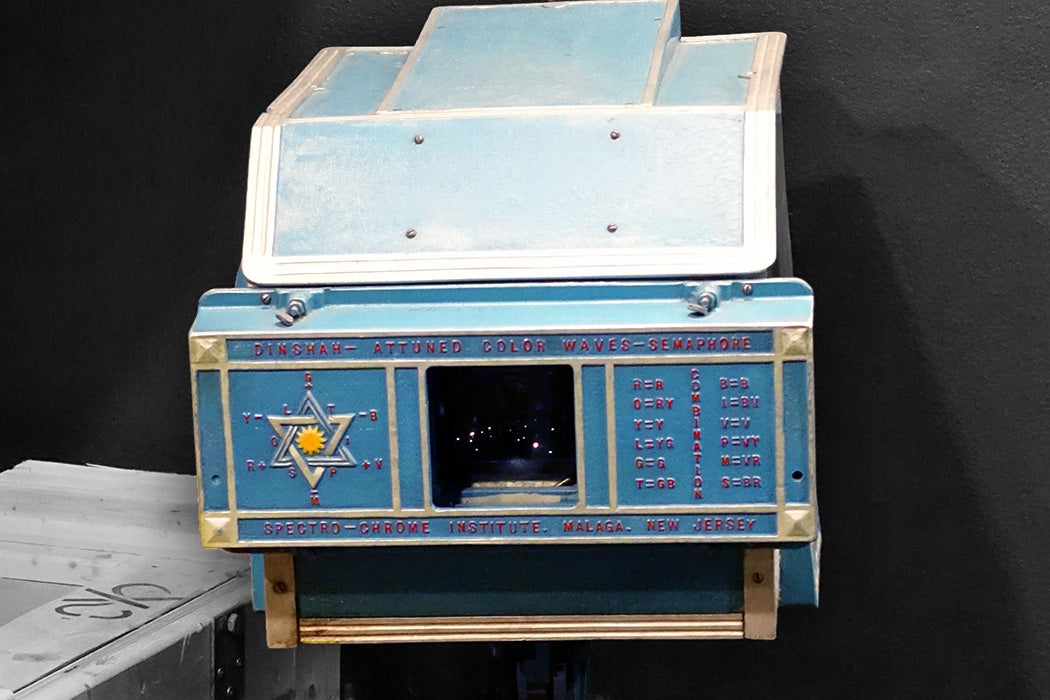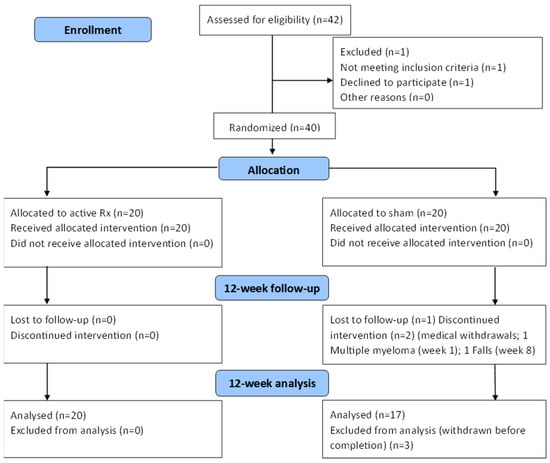Parkinson’s News Forums › Forums › Parkinson’s Treatment › Use of infra-red devices
Tagged: Red Light Therapy
-
Use of infra-red devices
Posted by MJoan on April 10, 2024 at 7:33 pmI am wondering whether anyone has used infra-red devices to help manage their Parkinson’s symptoms. I’m aware there is research about using a helmet with infra-red but has anyone tried other devices on their own? If so, did you have any positive results?
christine-p replied 9 months ago 20 Members · 26 Replies -
26 Replies
-
I’ve been using the Symbyx device for my head, and the hand held device for my gut for approx 20 weeks. Symbyx say that approx 12 weeks of use before any signs of improvement can be seen. At 6 weeks my sense of smell started to return, and my sleep became uninterrupted for the first time in about 2 years, (I have on average 5 nights sleep a week now) my other symptoms namely constipation and tremors on my left side have, up till now, not benefited me at all. As parkinson’s can ‘present’ itself in about 40 ways, not everyone will get the same result and Symbyx accept that only 70% of users will get some benefit from the equipment.
It is a big risk financially speaking, but for me, a risk I was prepared to take if I can slow down the process of this horrible disease. Finally, do some research and see if it is worth it for you. Good luck
-
Thank you for sharing your experience. I, too, was thinking about using Symbyx and when I presented to my previous neurologist, he just made a Hugh X on my paper. That’s why I didn’t get it. now I think of it, kinda regret it. Because I’m thinking to get one. by the way, the hand held one, did it help you with your constipation at all?
Thanks.
Christine
-
-
I just bought the Symbyx helmet, and used it twice only. If you laydown & wear the helmet, there is a nail pushing the back of head, very uncomfortable. I will try to put a small pad next time. For the first month using it, should only use three times per week.
-
I did infared therapy in a whole body machine 3 x a week for 12 weeks I had no change in my Parkinson’s symptoms
-
I have used the celluma pro and the biomat for about 2 years. There are benefits in general but I haven’t seen that either do enough for my PD symptoms to offset the price tag.
But I have used them for back pain relief which the celluma is great for i’ve experienced minimal relief for my dystonia in my hand. I use them because I have them. And I use them 2 to 3 times a week because they’re relaxing and
because I have them.
-
Thanks ckf. My husband frequently has back pain so it would be a benefit to him even if it only helps with tha.
-
-
-
I have purchased a Symbyx device and too early to tell if the helmet is helping. The hand held PD device has relieved TMJ, painful jaw while chewing. It also relieved shoulder pain. So far I am happy with it.
-
I use a wrap around pad for my leg. I have neuropathy and tremors in my left leg. a red light device help immensely. a peculiar side affect is the varicose veins have disappeared where the pad is applied around the calf and ankle, a stark contrast to might right leg.
-
-
I use a panel from blue block light company
My sleep is tremendously improved if I use it nightly
I am saving up for the symbx helmet
-
i have been informed SYMBX no longer is able to ship to the U.S. I am interested in the helmet as well.
-
I tried it for a month or so. No impact. I’ve since read and spoken with a couple of movement neurologists and they said there is no reliable research behind it, yet.
-
I bought a Red Rush360 unit recommended by Ari Whitten in his book “The Ultimate Guide to Red Light Therapy.” It has both red light and near-infrared lights at the wavelengths that seem to produce the best results. It has become one of the therapies I try to use regularly, as I do feel noticeably better when I do.
-
-
-
I have used the SYMBYX hand held for about four months. I also have and use Bemer PEMF therapy mat for one year. I have not noticed any improvement in any of my symptoms. The good news is that I have not seen any symptoms progressions.
Eve
-
-
For a little about light therapy 100 years ago, see https://daily.jstor.org/colorful-lights-to-cure-what-ails-you/
I am not a medical person, but I am an engineer and at one point I offended my neurologist by telling him that the only difference between his profession and mine is the type of computers we work on. Mine are silicon-based, his are carbon-based. There is one other difference, though — I know how mine work, he hasn’t figured out how the carbon-based computers work. He didn’t like me much after that.
I don’t want to trigger a firestorm or make it hard on the moderators, so I’ll say no more. Everyone is entitled to an opinion, wisdom is knowing when to keep it to oneself.
To the moderators: This is a great forum. Keep it up and thanks.
daily.jstor.org
Colorful Lights to Cure What Ails You - JSTOR Daily
Between 1920 and the 1960s, tens of thousands of people received treatment with a Spectro-Chrome to address various ailments.
-
I have used the Symbyx red light helmet and handheld PDCare devise for about 6 months now. My constipation issues have cleared, I am sleeping better and I no longer have a tremor . I understand that this can be also due to the positive effects of daily, intense exercise and CL medication. Regardless, I plan to stick with this regimen.
-
That’s wonderful. I have also been using it for about 4 months. Thanks for sharing.
-
I was diagnosed 10 years ago and have been using the Well Red helmet 1 x a day for around 6 years now. I still only have the tremor in my right arm as well as constipation but other than that I’m doing well. I box 2 x a week, fast walk 3 x a week , cycle and gym as well. I take Stalevo 150/37.5 2-3 times a day but to be honest I don’t and have never really felt a difference after taking the medication.
-
We were given an Infared sauna which I find enjoyable but the only benefit I get is clearer complexion. Years ago, I used a Dr. Light therapy pad which gave me pain relief for my elbow. That was long before Parkinson’s started kicking in.
-
I use the Vielight Gama near-infrared helmet device. My use has been on and off over the couple of years I’ve had it. I can’t say for certain that it helps mainly because I do so many protocols. I figure it probably can’t hurt and may help. The science seems solid. I benefit a lot from a keto diet, intermittent fasting, and exercise.
-
Personal testimonials are hard to interpret. Randomized clinical trials are the way to go. Check this out:
<b itemprop=”name”>A Randomized Placebo-Controlled Study of a Transcranial Photobiomodulation Helmet in Parkinson’s Disease: Post-Hoc Analysis of Motor Outcomes
<b itemprop=”name”>J. Clin. Med. 2023, 12(8), 2846; https://doi.org/10.3390/jcm12082846
Emerging evidence is increasingly supporting the use of transcranial photobiomodulation (tPBM) to improve symptoms of neurodegenerative diseases, including Parkinson’s disease (PD). The objective of this study was to analyse the safety and efficacy of tPBM for PD motor symptoms. The study was a triple blind, randomized placebo-controlled trial with 40 idiopathic PD patients receiving either active tPBM (635 nm plus 810 nm LEDs) or sham tPBM for 24 min per day (56.88J), six days per week, for 12 weeks. The primary outcome measures were treatment safety and a 37-item MDS-UPDRS-III (motor domain) assessed at baseline and 12 weeks. Individual MDS-UPDRS-III items were clustered into sub-score domains (facial, upper-limb, lower-limb, gait, and tremor). The treatment produced no safety concerns or adverse events, apart from occasional temporary and minor dizziness. There was no significant difference in total MDS-UPDRS-III scores between groups, presumably due to the placebo effect. Additional analyses demonstrated that facial and lower-limb sub-scores significantly improved with active treatment, while gait and lower-limb sub-scores significantly improved with sham treatment. Approximately 70% of participants responded to active treatment (≥5 decrease in MDS-UPDRS-III score) and improved in all sub-scores, while sham responders improved in lower-limb sub-scores only. tPBM appears to be a safe treatment and improved several PD motor symptoms in patients that responded to treatment. tPBM is proving to be increasingly attractive as a possible non-pharmaceutical adjunct therapy.
doi.org
Emerging evidence is increasingly supporting the use of transcranial photobiomodulation (tPBM) to improve symptoms of neurodegenerative diseases, including Parkinson’s disease (PD). The objective of this study was to analyse the safety and efficacy of tPBM for PD motor symptoms. The … Continue reading
Log in to reply.


